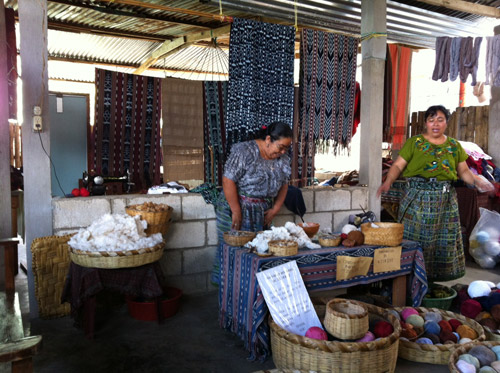Imagine if some of the money you spent dining out was donated to women less fortunate than you.
Now imagine the sum total of the Farmgirl Sisterhood’s dining bill donation. Ka-ching!
It could add up to a whole lot of good in the blink of an eye.
In the fall of 2002, Marsha Wallace, a former nurse and mother of four from Greenville, South Carolina, was inspired to build just such a dream into reality. How?
By harnessing the financial power of the potluck.
Her vision: to help support impoverished women and children in developing countries.
Without further ado, Dining for Women was a done deal.
Martha calls her potluck phenomenon a dinner giving circle. “We ‘dine in’ together once a month, each bringing a dish to share and our ‘dining out’ dollars (what we would have spent if we had eaten at a restaurant) are sent to programs empowering women worldwide.”
With more than 250 chapters around the globe, and an average person’s potluck donation of $32, the good adds up fast. Each month, the donations from all chapters are pooled to fund one carefully selected international program. The group seeks out grassroots programs in education, healthcare, vocational training, micro-credit loans, and economic development.
I traveled to Guatemala recently to experience first hand the women the program is designed to help. My husband and I took a water taxi across Lake Atitlan, to San Juan La Laguna, a small village known for its women who make yarns, soaps, creams, and textiles with natural dyes. Here’s a pic of two of the women who are part of a community co-op, 48 women in all (the one on the left is the president) who make all sorts of textiles using only natural dyes. Beets, carrots, coconut shells, tobacco, etc. are used to make the dyes. We discussed the possibility of using their dyes to make our candles and lotions, etc.

“These programs are aimed to improve the living situations for women and their families, by providing the tools they need to make changes.”
According to Dining for Women’s website, the group gives only to women and girls because 75 percent of the world’s 1.3 billion people living in extreme poverty are women and children of developing nations.
“Our members become agents of change, working to alter the face of world poverty,” Martha says. “The power of collective giving allows each of us to make a more substantial difference in the world than we could do individually.”
Learn how you can pitch in on the potluck and help Dining for Women make a difference.




















































